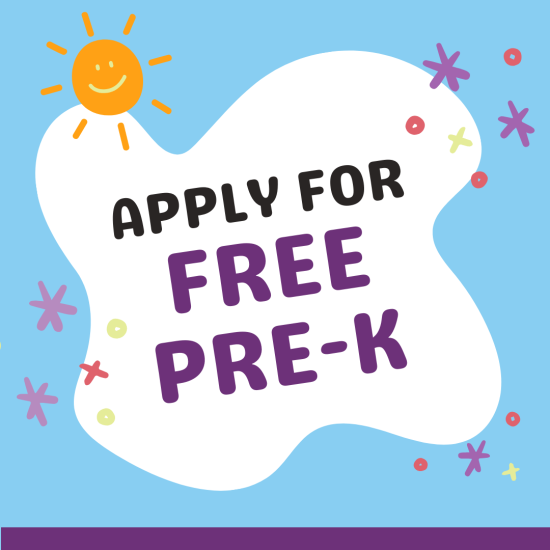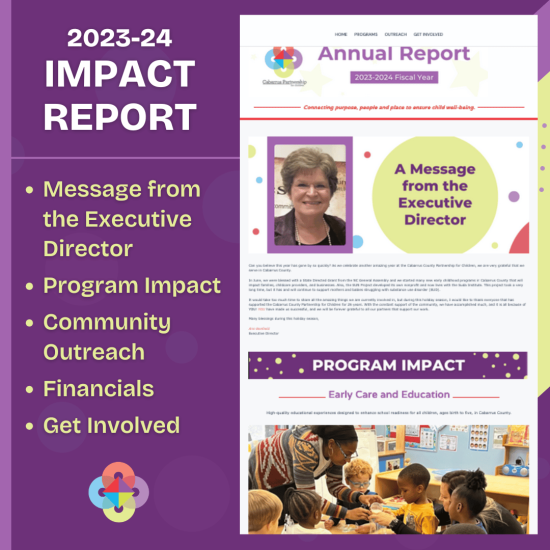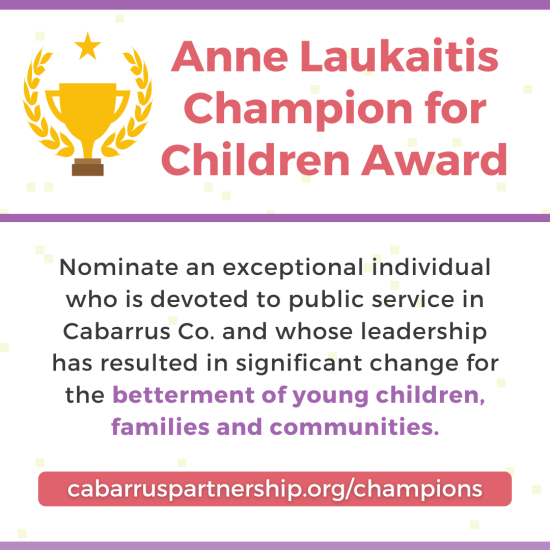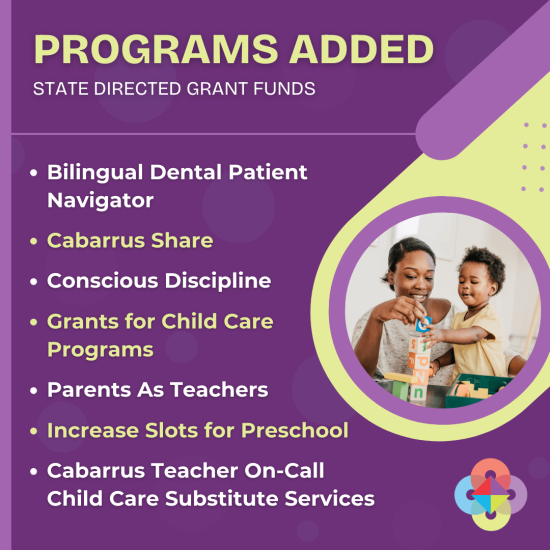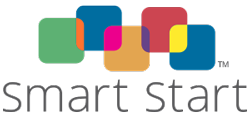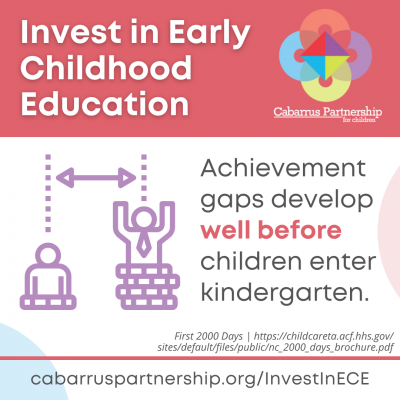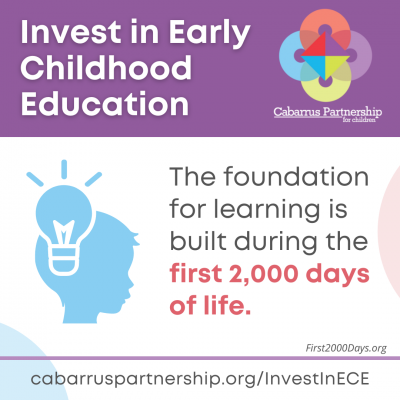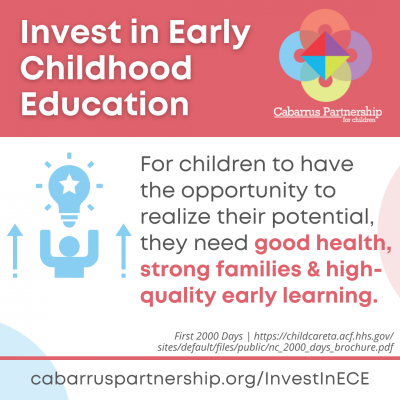With quality early child development experiences, children are school ready, graduate from high school and grow into productive citizens and valuable employees.
The foundation for learning is built during a child’s first 2,000 days of life
The first five years are the most critical in the development of a child’s brain. During these early years, children begin to develop their cognitive, social, emotional, and language skills and start to relate to and interact with the world around them. In fact, from birth to age three, children grow and learn at the most intense rate; these are the years when children are learning how to learn.
The early years are so defining that by the time children turn eight, their third-grade outcomes can predict future academic achievement and career success. Scientific research has made clear that the quality of a child’s experiences in the first few years of life – positive or negative – shapes their brain develop, these experiences have lasting impact on their health and ability to learn in school and succeed in life.
Early experiences are built into our bodies
For children to have the opportunity to realize their potential, they need good health, strong families and high-quality early learning.
Health in the earliest years lays the groundwork for future well-being. High quality early learning with health and nutritional components help prevent adult chronic diseases and promote better health.
A study of children who participated in the Carolina Abecedarian early learning program showed significantly improved health as adults as compared to the group that did not participate. They experience fewer illnesses as adults, make healthier lifestyle choices, have lower rates of high blood pressure, and have significantly lower risk of heart disease.
Building a foundation for success
A child’s early years hold the key to their success. Children who are healthy and prepared when they enter kindergarten do better in school and are more likely to graduate and enroll in college. Well-educated adults are more prepared for the job opportunities in a global marketplace and will contribute to the strength of their community.
High quality early development and learning yields:
- Fewer special education placements
- Higher graduation rates
- Reduced crime
- Higher earnings
- Less reliance on social services
High quality early learning increases graduation rates by as much as 44%.
At-risk children who participated in a high-quality early learning were significantly less likely to be arrested for a violent crime by age 18. They were also more likely to be employed and earned 33% higher average salaries.
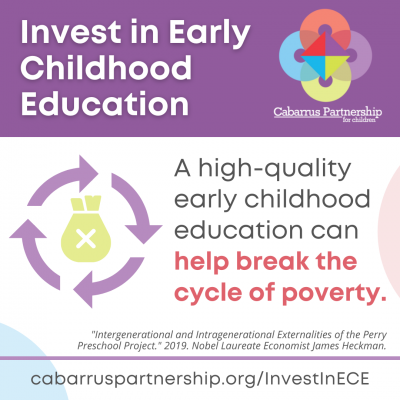
Quality early childhood education for children birth to age 5 increases school readiness, which leads to workforce readiness.
74% of business leaders say a skilled workforce is the most important factor to business success. - Zogby International (2005)
“Business leaders and policymakers should consider investment in young children one of the most effective strategies to secure the future economic strength of their communities and the nation." - The Committee for Economic Development
Allocating resources to support the health and learning of young children is a critical economic development strategy. The business community agrees, because the competitiveness of small, medium and large companies depends on having a pipeline of talented, educated employees with the skills needed in today’s economy:
- Problem-solving
- Communication
- Decision-making
- Critical thinking
- Motivation
- Collaboration
When we invest in early learning, both individuals and society win through the creation of a skilled workforce, lower health care costs and lower judicial system costs due to a reduction in crime.
Support Your Local Programs
» Support high-quality early education in Cabarrus County
AN INVESTMENT IN THE FUTURE
Research published by Duke University found that North Carolina's investment in early child care and education programs resulted in higher test scores, less grade retention and fewer special education placements through fifth grade.
Investing in early childhood means funding proven programs and innovative strategies for children from birth to age 5 that:
- Strengthen families in their role as their child’s first teacher
- Improve the quality of early learning environments like preschool and child care, and expand access to those programs
- Promote prevention and early identification of health problems that can impact learning later on
High-quality preschool for three- and four-year-olds can have a significant impact on all children, but especially those from low-income families. Research shows that quality early education programs have positive impacts on all children’s cognitive and language development, regardless of income level or program setting. For example, a study of the current pre-k program in Tulsa, Oklahoma found that children from families earning more than 185% of the federal poverty level made significant gains in early literacy skills. This is important because middle-income children also experience educational challenges—during the 2005–2006 school year, more than half of all dropouts were from middle-income families, and 10% of all middle-income children age 16 to 19 have been retained in grade at least once.
While pre–K for all may have the greatest total impact, the largest per-child impact is clearly on disadvantaged children. Longitudinal research on low-income children in high-quality pre–K programs also indicates that these children, compared with their peers who did not participate, exhibit stronger early reading and math skills and show significant gains in social and emotional skills, reduced grade retention, reduced placement in special education, increased likelihood of being in school at age 21, and increased likelihood of attending a four-year university.
Meaningful investments in quality early learning programs for younger children have lasting effects that can reduce costs later in life while enhancing economic growth. Interventions early in life have a higher rate of return than later interventions. Longitudinal research has shown gains among program participants so significant that they have resulted in positive outcomes through adulthood. Specifically, program participants were less likely to be involved in criminal activity or be arrested; less likely to rely on social services such as welfare; less likely to have children out of wedlock; and more likely than nonparticipants to earn more, own a home, or own a second car.
A high-quality early childhood education can help break the cycle of poverty. Early environments (i.e., cognitive and noncognitive stimulation) are a powerful predictor of success in adulthood. A wealth of brain research concludes that early experiences have a profound impact on cognitive, social, and emotional development. Providing young children with a strong start early on can help counteract disadvantaged environments.
Support Your Local Programs
Sources:
First 2000 Days. https://childcareta.acf.hhs.gov/sites/default/files/public/nc_2000_days_brochure.pdf
First Things First, Investing in Early Childhood. https://www.firstthingsfirst.org/early-childhood-matters/investing-in-early-childhood
NC Early Childhood Foundation. https://buildthefoundation.org/wp-content/uploads/2019/07/Infographic-2019.pdf
Early Childhood Spending Benefits Don't Fake Away, NC Study Finds (Duke Today, 11-16-2016)
